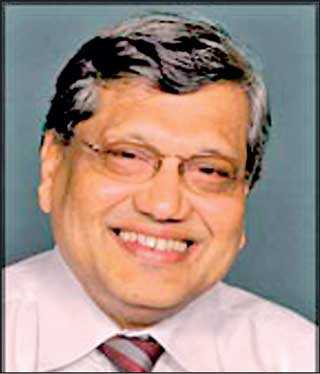Thursday Feb 26, 2026
Thursday Feb 26, 2026
Friday, 23 April 2021 00:00 - - {{hitsCtrl.values.hits}}
 |
| Prema Cooray
|
Highly respected industry veteran Prema Cooray yesterday insisted that a new Tourism Act was unwarranted, and putting private sector representation out of key agencies would be highly detrimental.
Joining the on-going debate and the chorus against a new Act, Cooray, who is synonymous with the tourism industry, told the Daily FT that the existing legislation was carved out after 10 years of hard work and consensus from all stakeholders, and to undo this achievement at this juncture was an unwise move with serious implications.
Cooray said since the late 1990s and early 2000s, apart from the ethnic conflict, the tourism industry struggled most with the “lack of focus and funding.”
With persistent private sector joint efforts amidst delay on the part of the then Governments, the existing Act was enacted in 2005.
“This Act ensured there is focus and more importantly funding entirely from the private sector for much needed tourism development and promotion,” recalled Cooray, who had his entire career at tourism-rich conglomerate Aitken Spence before retiring as Chairman.
Aitken Spence also pioneered sustainable development via its flagship Kandalama Hotel, which is a global case study thanks to perseverance by Aitken Spence despite initial objections owing to misunderstanding.
Cooray, an ex-President of The Hotels Association of Sri Lanka (THASL), recalled that imposition of 1% of turnover as Tourism Development Levy (TDL) and a part of the Embarkation Tax ensured steady finances for the industry via the Tourism Fund. Of the fund, 73% went to running the Sri Lanka Tourism Promotion Bureau (SLTPB) and the balance to regulatory agency Sri Lanka Tourism Development Authority (SLTDA), the Sri Lanka Conventions Bureau (SLCB) and the Sri Lanka Institute of Hotel Management (SLIHM).
Since tourism is entirely private sector driven and along with contribution to the Fund, representation by the industry was mandated via the 2005 Act.
However, the new tourism administration is busy amending the Act to amalgamate three institutions – SLTPB, SLTDA and SLCB to one entity called the Sri Lanka Tourism Authority sans private sector participation.
The move stems from a proposal in the 2020 Budget presented by the new Government, whilst lack of private sector support as well as divisions within and greater autonomy and capacity were sighted as reasons for the amalgamation via a new Act.
Cooray, who was awarded the ‘Legend of Tourism’ by the Ministry of Tourism in 2011, begs to disagree and insists that the three institutions – SLTPB, SLTDA and SLCB must be operated separately with greater private sector representations in the Boards of SLTPB and SLCB.
“Having a common and competent Chairman drawn from the public sector is fine but the respective Boards must have private sector representatives since the industry is entirely private sector run and funded,” he emphasised.
“If needed, a dedicated Managing Director to each of the agency can be considered,” added Cooray, who twice served as the SLCB Chairman and currently chairs a rainforest initiative partnered by the private sector which bench-marks the best practices for Eco Tourism development in Sri Lanka.
“We know what and how the Ceylon Tourist Board was before the existing Act came into force and the proposed new Act will cause serious damage,” he opined.
Cooray pointed to the Sri Lanka Tea Board which handles regulation as well as promotion and is well represented by the private sector industry associations.
He stressed that the 2005 Act inspired by unprecedented unity within the industry as well as the end of the conflict empowered tourist arrivals to reach a record level of 2.3 million in 2018 from around 400,000 in the early 1980s.
Cooray recalled the formation of Sri Lanka Association of Inbound Tour Operators (SLAITO) in 2002 was following industry unity since that stakeholder segment was divided between Association of Group Tour Agents (AGTA) and the Travel Agents Association of Sri Lanka (TAASL). The reinforced unity resulted in the launch of ‘Small Island Big Trip’ promotion in India which was the springboard to make the giant neighbour as the key market for Sri Lanka tourism; thereafter including MICE tourism.
Cooray said that a competitiveness improvement initiative funded by the USAID in the early 2000s also played a key part in fostering unity within the industry apart from extending support to enhance private sector capacity as well as re-profiling Sri Lanka as a diversity-destination as opposed to mere beach-centric.